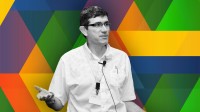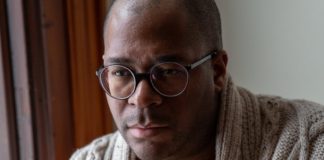
Newswise — In a long career full of scientific accomplishments, Brian Davison counts among his many successes the formation of Oak Ridge National Laboratory’s LGBTQIA+ employee group and helping gay and lesbian staff at the lab navigate a sometimes tricky landscape has been among his most meaningful experiences.
Davison is Chief Scientist for Systems Biology and Biotechnology in ORNL’s Biosciences Division. The lab’s LGBTQIA+ group recently changed its longtime name, GLOBE, to PRISM.
Davison, who came out as gay as a graduate student at Caltech in the early 1980s and has been with ORNL his entire career, worked with two ORNL colleagues in the mid-1990s to push lab leadership to endorse a group to represent gay and lesbian staff.
There was a lot of management resistance at first, he said. “Some of the first bits of feedback were, ‘Well, no one has ever complained about discrimination or harassment, therefore we have no problem.’ Our first thought in response was, ‘Why would anyone come to you with a complaint when you’ve made no indication that you would stand by them?’”
Davison and his colleagues, Rick Borchelt and Randy Hoffman, worked another two years before receiving official approval for the group. During this time, he discovered that federal agencies including the departments of Energy and Agriculture already had officially recognized employee groups.
“We actually reached out to the DOE headquarters group to get support,” Davison said. “We ended up finally getting our charter with help of Bob Van Hook, who had been deputy director here and was managing Y-12 at the time. He was the one who finally pushed it over the line, and just said, ‘We’re doing this because it’s the right thing to do.’”
Because of initial negative reactions, the group was very protective of its members. They met in a small conference room in the old guardhouse outside the east gate — off campus — and sent email correspondence from their own personal computers.
Over the next several years, Davison began speaking openly about being a gay male scientist, and he discovered how meaningful it was for others who weren’t comfortable expressing their full identity to hear about his experiences. “In the late 90s and early aughts, even among diversity groups, people were surprised I was so willing to speak publicly,” he said.
Davison often fielded requests for advice from LGBTQIA+ staff about how to handle issues they faced at the lab. “I got calls from people who said, ‘Hey, this is the situation I’m in. Should I take this to HR?’ And I would try to help them think through the pros and cons of various actions, as well as helping them identify allies in their organization.”
Around 2002, the group began to lobby Lab leadership to add sexual orientation to its nondiscrimination policy. “By 2007, we had surveyed all the other DOE labs and found out we were one of three that still had not officially added sexual orientation to their policies,” he said.
The group had pulled all the data together and was geared up to make the case in a 2007 meeting with the new lab director, Thom Mason. “We walked into the meeting, and he immediately said, ‘I’m approving this,’” Davison said. “It was one of those times where you’re pushing against a door, and then suddenly someone opens it. I didn’t know what to say, except thanks.”
Davison, who was made a Corporate Fellow in 2020, said his research has touched on both fundamental and applied science, and he has helped build and manage new research programs. He has had a key role in shaping how DOE will transition toward future priorities of national interest such as the bioeconomy. He has developed technologies that have gone on to be commercialized, winning an R&D 100 Award for one of them.
Davison said he’s been lucky: his managers have always valued his contributions, and colleagues see him as a scientist first.
“With my position, with my respect in science, with what I’ve been able to accomplish in my professional career, I’ve had greater freedom to be public and to speak on behalf of this community than many other people felt comfortable doing, even if they were supported and out in their local groups or with the local supervisors and line management,” he explained.
Davison values being able to mentor other LGBTQIA+ staff and students. He also feels that his experiences have made him a better mentor to other underrepresented groups at ORNL.
“If someone comes to me concerned about coming out at work, I can reassure them that they’ll find a supportive community here,” Davison said. “But I also tell people ‘you have to be excellent,’ and that’s true for anyone of a minority status in the sciences. You cannot be average or below average. If you’re going to succeed, you have to be excellent.”
Davison is proud of the social, advocacy and support role PRISM has filled on campus. In the 24 years since the group formed, there’s always been a core of about a dozen members, and more have attended special meetings focused on topics such as adding sexual orientation to the lab’s nondiscrimination policy and accessing partner benefits.
“It’s really been amazing to observe the sea change in the last decade, with people being able to get married and the recognition of our families,” Davison said. “Things have dramatically improved for LGB staff. Now, within ORNL and society, we’re all learning more in the gender identity part of the term — transgender, intersex, queer and others.”
“A lot has changed over my 36 years at the lab,” he said. “It’s nice to find us broadly getting away from ‘Well, I don’t like those people, but Davison’s okay.’”
UT-Battelle manages ORNL for Department of Energy’s Office of Science, the single largest supporter of basic research in the physical sciences in the United States. The Office of Science is working to address some of the most pressing challenges of our time. For more information, please visit energy.gov/science. — Laurie Varma







